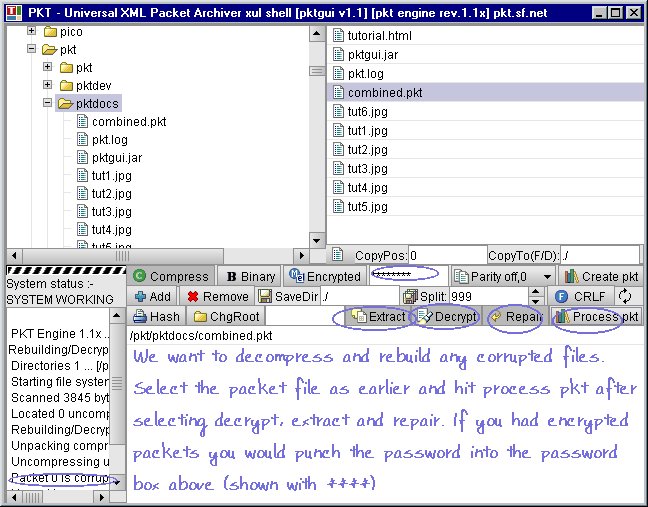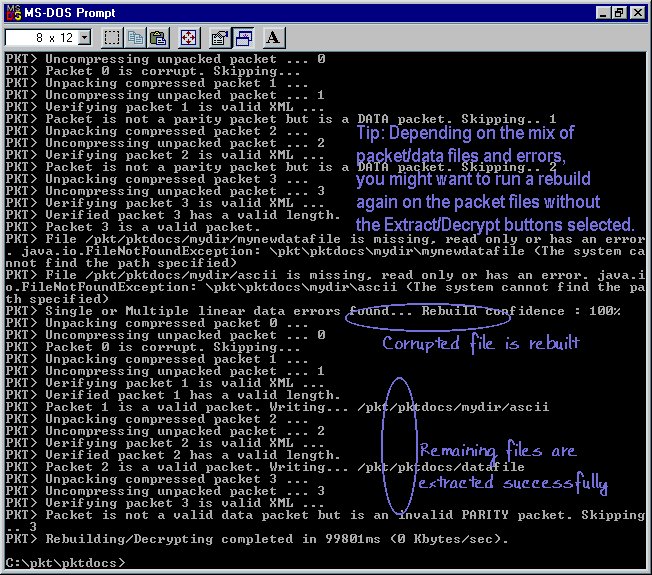
PKT Tutorial
The Basics
PKT is an XML packet archiver. The main function of PKT is to take data (from files, directories and other sources) convert it into a data pool (similar to a bucket of data) and split it up into packets. The packets are XML encoded which allows anyone to read, modify and repair them by hand if necessary. This is useful for extremely long term backups when pkt itself may not be around. The algorithms used in PKT are all either open source, widely available and published and patent free.This allows PKT files to survive on long term backup media.
PKT Files
PKT generates .pkt files which are basically a series of packets (one or more) appended to each other. The file names have no meaning. You can rename .pkt to .xyz if you like. You can even generate a disk image such as an .iso of a bunch of data mixed with packet files and pkt will extract packets from the data chunk. Provided that the packet beginning and end headers are intact along with all the data in between, you can even take these .pkt files and split them up by each individual packet using a freeware file splitter. Packets can be data packets, hash packets, parity packets or anything else. Packets can be 8-bit binary (bzip2 compressed) or 7-bit pure XML packets. The 8-bit packets are simply the 7-bit packets compressed with bzip2. you can even modify a 8-bit packet manually with bzip2, uncompressing it to the plain text XML packet. The data in the XML packets is all UUEncoded and can be decoded manually with UUDecode. pkt generates data and parity packets separately, so you can store parity information separate of the data or combine it with a copy command.
Tutorial Step 1/2 : Using the GUI to create a data packet with parity information
In order to demonstrate how to use pkt, a simple data packet will be created with parity information. A Hex editor will be used to mangle this information in order to show pkt recovering it.






Tutorial Step 2/2 : Uncompressing and recovering a .pkt file


We now have our data back safely repaired.
EOF